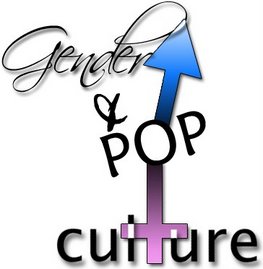 The reasoning behind advertising to housewives is that “buying a product appears as the true means of changing the unpleasant realities and low status of women’s work in the home” (Lipsitz). The hit T.V. show “Desperate Housewives has the tendency to glamorize the unpaid and unappreciated housewife. Throughout the show, we see very attractive women wearing nice clothing and full fledged makeup with very asthetically pleasing homes. It is only through Lynette’s character that one sees that being a housewife is difficult and unglamorous work. Products such as a “Desperate Housewives” food timer, cookbook, and oven mitts are not in actuality going to make cooking and housework as a whole any easier. The only realistic depictions of housewives were through the character of Lynette, who can no longer be considered a "housewife" due to the fact that she currently holds paid employment on the show. The products being sold to women who are fans of the show give them the illusion that being a housewife is fun and glamorous; making them want to do the unpaid, low status, and challenging work.
The reasoning behind advertising to housewives is that “buying a product appears as the true means of changing the unpleasant realities and low status of women’s work in the home” (Lipsitz). The hit T.V. show “Desperate Housewives has the tendency to glamorize the unpaid and unappreciated housewife. Throughout the show, we see very attractive women wearing nice clothing and full fledged makeup with very asthetically pleasing homes. It is only through Lynette’s character that one sees that being a housewife is difficult and unglamorous work. Products such as a “Desperate Housewives” food timer, cookbook, and oven mitts are not in actuality going to make cooking and housework as a whole any easier. The only realistic depictions of housewives were through the character of Lynette, who can no longer be considered a "housewife" due to the fact that she currently holds paid employment on the show. The products being sold to women who are fans of the show give them the illusion that being a housewife is fun and glamorous; making them want to do the unpaid, low status, and challenging work.Lipsitz, George. The meaning of memory- family, class and ethnicity in early network television. Gender, Race, and Class in Media, 40-47.
Links to the photos:
http://www.cafepress.com/buy/Desperate+Housewives/-/pv_design_details/pg_1/id_10765252/opt_/fpt_________F______P___b7_a2/c_368/
(I’m a Bree)
http://www.cafepress.com/buy/Desperate+Housewives/-/pv_design_details/pg_1/id_12955179/opt_/fpt____________________aF_aX/c_453/
(Desperate Housewife magnet)
http://abctvstore.seenon.com/detail.php?p=9313&v=abcdhwfan
(Cookbook)
http://abctvstore.seenon.com/detail.php?p=3473&v=abcdhwfan
(Timer)
http://abctvstore.seenon.com/detail.php?p=12097&v=abcdhwfan
(“Blinged out” mug)
http://abctvstore.seenon.com/detail.php?p=2059
(Tote)
http://abctvstore.seenon.com/detail.php?p=1479
(Oven mitts)
http://graphics.jsonline.com/graphics/owlive/img/oct04/desparate_100204_big.jpg
(Lynette with baby)
http://www.cafepress.com/buy/Desperate+Housewives/-/pv_design_prod/p_storeid.70107323/pNo_70107323/id_13965827/opt_/pg_/c_/fpt_
(Apron)
http://www.cafepress.com/buy/Desperate+Housewives/-/pv_design_prod/p_995757.22213197/pNo_22213197/id_7311541/fpt_Za__D_HPI_____D_____a_P_B/opt_/c_367/pg_1
(Mug)
http://www.cafepress.com/buy/Desperate+Housewives/-/pv_design_prod/pg_1/p_storeid.32320716/pNo_32320716/id_8823262/opt_/fpt____________CX_________K_______H/c_363/
(Bib)
http://www.cafepress.com/buy/Desperate+Housewives/-/pv_design_prod/pg_3/p_storeid.94984660/pNo_94984660/id_16516789/opt_/fpt_Za__D_HPI_____D_____a_P_B/c_367/
(Throw pillow)
http://www.cafepress.com/buy/Desperate+Housewives/-/pv_design_details/pg_1/id_7355283/opt_/fpt_____________FX__A__________X/c_366/
(Journal)
http://www.cafepress.com/buy/Desperate+Housewives
(I cannot seem to find the picture of the ornament that has the picture of the woman sitting cross legged… but it is from this link)


